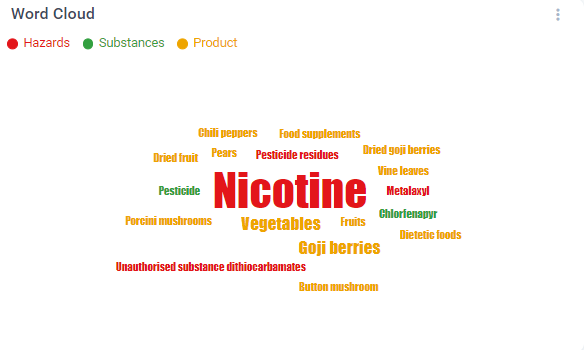In February 2023, the European Union published Regulation (EU) 2023/377 amending Regulation (EC) No.396/2005 and lowered maximum residue levels for various substances including nicotine. This regulation will take effect on September 14th, 2023.
The European Union's implementation of Regulation (EU) 2023/377 brings significant changes to maximum residue levels (MRLs) for various substances, including nicotine. In this blog post, we will delve deeper into the specifics of this regulation, highlight key numerical data, and emphasize the importance of monitoring nicotine levels in food products.
Regulation (EU) 2023/377:
Lowered MRLs and Effective Date: Published in February 2023, Regulation (EU) 2023/377 amends Regulation (EC) No. 396/2005 and brings about a reduction in maximum residue levels for several substances, including nicotine. This regulation is set to take effect on September 14th, 2023, providing businesses with a clear timeline for compliance.
Nicotine Reduction and Impacted Commodity Groups:
- Herbal infusions
- (Fresh) herbs and edible flowers
- Rose hips
- Wild fungi (fresh)
- Spices
- Tea
Transitional Marketing Arrangements and Monitoring:
To facilitate a smooth transition, transitional marketing arrangements will be implemented for all products, except rose hips, that were produced before the amendment of MRLs. This provision recognizes the need for businesses to gradually align with the new requirements. Furthermore, the regulation emphasizes the importance of continuous monitoring and review of nicotine MRLs over a period of 7 years. This ensures that any emerging information or scientific findings can be considered for future adjustments.
Nicotine Complaints and Risks:
Data from SGS DIGICOMPLY's Food Safety Intelligence highlights a significant number of complaints related to high nicotine levels in certain food products. In total, 26 data entries have been recorded, with goji berries and mushrooms being the most commonly affected items. These findings underscore the importance of monitoring nicotine levels to mitigate potential health risks associated with its presence in food.
Leveraging SGS DIGICOMPLY for Compliance and Regulation Tracking:
To effectively manage compliance with the evolving regulations, businesses are recommended to utilize SGS DIGICOMPLY, an AI-powered digital solution. This comprehensive platform provides real-time updates on regulations, allowing companies to stay informed about changes and adjust their practices accordingly. SGS DIGICOMPLY's advanced monitoring capabilities enable proactive tracking of nicotine levels and other relevant parameters, ensuring compliance with the latest food safety standards.


Conclusion:
With the implementation of Regulation (EU) 2023/377, the European Union aims to enhance food safety by lowering maximum residue levels, including those for nicotine. Businesses must stay vigilant and proactively monitor nicotine levels to ensure compliance and mitigate potential health risks. SGS DIGICOMPLY offers a robust solution for navigating the complexities of food safety regulations, enabling companies to stay compliant, track changes, and safeguard the quality and safety of their products. Explore SGS Digicomply platform now.





.webp?width=1644&height=1254&name=Food%20Safety%20Dashboard%201%20(1).webp)
